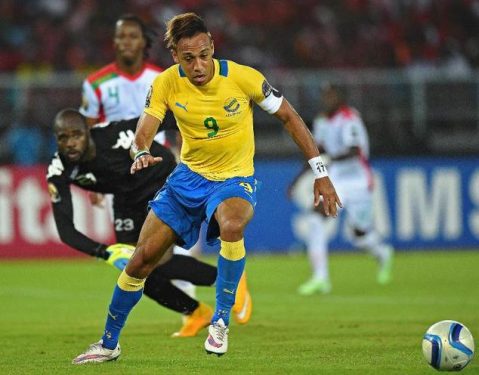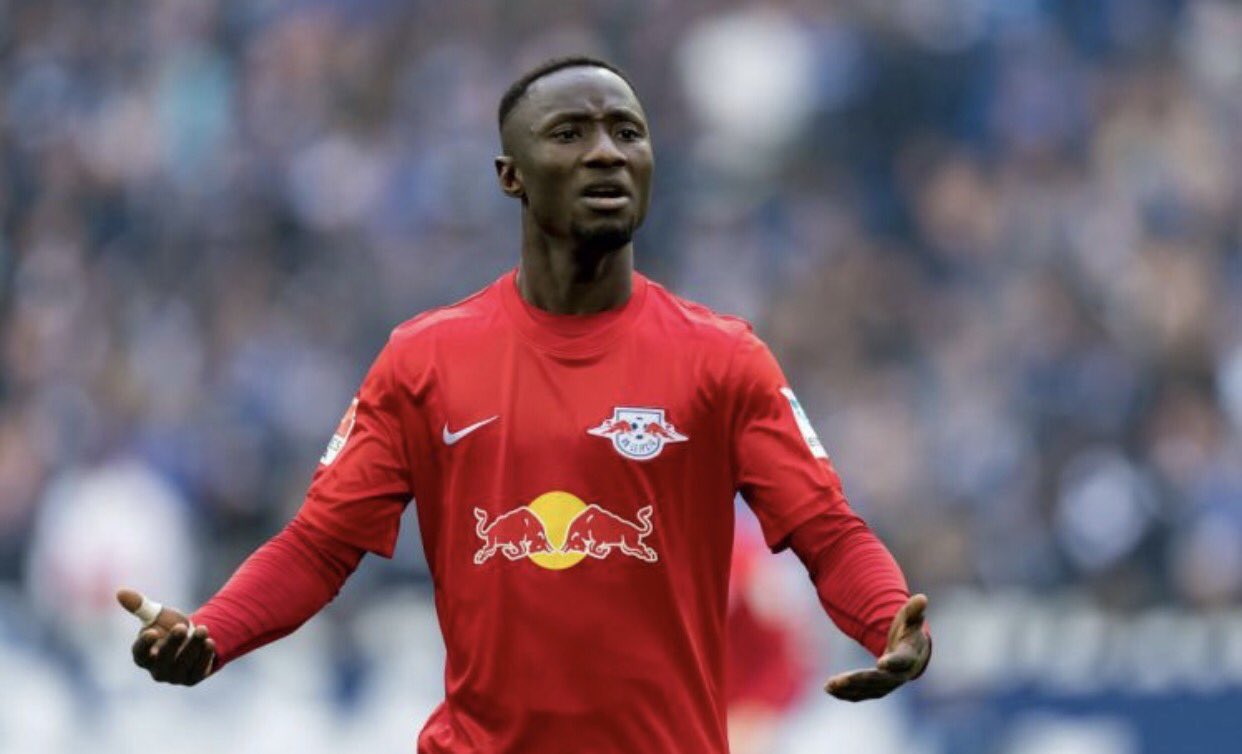Henry Onyekuru grabbed the headlines in Belgium the other weekend, scoring his first two goals for Anderlecht in a 3-2 win over Lokeren.
The 21-year old Nigerian is, of course, no stranger to Belgian league observers. He took the Jupiler league by storm last season, scoring 24 goals for newcomers Eupen and sealed a transfer to Premier League Everton in the off season – he’s on loan at Anderlecht this season.
Onyekuru, who added another goal a week later, is representative of a new wave of African talent making marks all over European football. His rapid rise – from Aspire Academy, through the Belgian 2nd division with Eupen to the Premier League – would be the very kind that would headline news of African stars excelling in Europe.
Yet, the fact that Onyekuru’s story – and the club he’s signed for, and the league he still plays in – is still relatively minor league when compared to those of bigger African stars is proof that times have never been better for African players in Europe.
It’s certainly a far cry from those days, back in the 1980s, when a whole generation of Nigerian internationals, in pursuit of the European dream, disappeared down the rabbit hole of the Belgian lower divisions. No, not some ambitious kids with an over-inflated estimation of their abilities, but full-fledged internationals like Yisa Sofoluwe, Humphrey Edobor, Osaro Obabaifo, and Sunday Eboigbe, part of a squad that lost a Nations Cup final to Cameroon in 1988.
Belgium was the place to be back then, Stephen Keshi’s influence and success with Anderlecht made it a top draw for Africans of all stripes. There have since been bigger names with bigger success. Abedi Pele won the Champions League with Marseilles in 1991, as did Nwankwo Kanu and Finidi George with Ajax four years later. George Weah became the world’s best player at PSG and Milan, while the likes of Samuel Eto’o and Didier Drogba reached new heights with Barcelona and Chelsea respectively.
But the current era seems even richer for the sheer quantity of African talent competing at the highest levels of the European game.

Take the top of the English Premier League: Champions Chelsea have Victor Moses, Spurs have Victor Wanyama and Serge Aurier, Man CIty Yaya Toure, and Liverpool boast the double threat of Sadio Mane and Mo Salah – and have just agreed a new club and African record fee for Naby Keita who will arrive from RB Leipzig next summer.
Arsenal also have two Africans in Mohammed Elneny and Alex Iwobi; and Manchester United include the Ivorien Eric Bailly. Onyekuru’s Everton finished 7th last season and already have Idrissa Gueye and Yannick Bolassie.
Further down the table, 2015 champions Leicester City boast no less than four Africans: Riyad Mahrez, Ahmed Musa, Kelechi Iheanacho and Islam Slimani.
There’s no shortage of high profile African stars elsewhere across the continent.
In Germany’s Bundesliga, Pierre Emerick Aubameyang’s goals have been the highlight of Borussia Dortmund for the past three seasons, and the aforementioned Keita finished last season voted second best player in the league.
France has long been a hotbed for aspiring African talent, but in Jean Michel Seri – the object of an ultimately futile £35m bid from Barcelona this last summer – Nice boast a player of real star quality, as do Montpellier who have the Algerian Ryad Boudebouz on their books.
In Italy, Napoli centre back Khalidou Koulibaly has cemented his reputation as one of the best in European football, and the budding 20-year old midfielder Krank Kessie is currently at AC Milan, whom he joined on loan from Atalanta this past summer.
There’s no denying that the relatively cheaper price tags on African players made them an attractive draw in years past. A prime example is Southampton moving Kenyan Victor Wanyama on to Spurs for just £12 million in 2016, while English youngsters Luke Shaw and Callum Chambers – both 19 at the time – moved on for £30 million and £16 million respectively two years earlier.
Even that is changing. Barcelona’s futile Seri deal aside, Liverpool paid about £35 million each for Salah and Mane, and Keita will arrive for about £50 million next summer; United splashed £30 million on Bailly last summer, the likes of Mahrez and Aubameyang would command top money if they were to move – Leicester reportedly refused to accept less than £40 million for Mahrez from Roma this summer.
A youngster like the 20-year-old Iheanacho – 14 goals but only 20 Premier League starts in two years at Manchester City – cost Leicester £25 million, City including a £50 million buy-back clause in the deal.
In contrast, Jay-Jay Okocha, already a superstar after playing in three World Cups and leaving PSG on a free transfer in 2002 couldn’t do better than Bolton Wanderers – no disrespect. How times have changed; imagine the rush for a player of his talents and pedigree in today’s market.
CAF’s recent decision to move the African Nations Cup finals from January to June will make African stars even more attractive to clubs in Europe. No longer do clubs have to worry about losing a key player for six weeks smack in the middle of the season.
The raw talent has always been there – even if Pele’s prediction of African World Cup winners by the turn of the last century was always a flight of fancy – and growing competition and globalization means scouting networks now spread their tentacles far and wide.
For the best of the lot, new found respect and commensurate renumeration means there has never been a better time to be an African football player.









